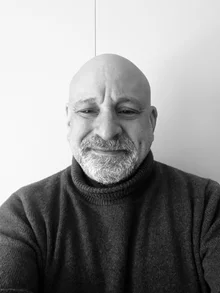Michael Karam reflects on Lebanon’s resilience, identity, and irony amid dysfunction, criticism, and enduring human warmth.
A failed state but we do good funerals

In a recent, and rather patronising, monologue, US special envoy, Tom Barrack, called Lebanon a ‘failed state’, citing our battered banking system with a discredited ex-governor; no state utilities and an army that’s not fit for purpose that is waiting to be gobbled up by Hezbollah. Barrack already lost friends by calling the Lebanese media “animalistic” at a chaotic press conference in August; now he was merely stating the obvious. Sahan nawm ya Tom!
Wikipedia describes a failed state as one that has “lost its ability to fulfill fundamental security and development functions, lacking effective control over its territory and borders…a government incapable of tax collection, law enforcement, security assurance, territorial control, political or civil office staffing, and infrastructure maintenance”.
Most Lebanese are familiar with every item on the list and have been for at least the past 50 years (longer if you include the catastrophe that was the 1969 Cairo Agreement which allowed the PLO to fight Israel from South Lebanon) but they have adapted to this reality with a ruthlessness that has been honed over millennia of being oppressed. The twin menaces of Israel and Hezbollah are merely part of a long list of actors who have never been able to dent our survival instincts.
Let’s go through the list. Banking. Well yes, that was a blow. We Lebanese are not by nature fighters, and despite our reputation for dispensing mayhem, money is our drug of choice. Even during the civil war, the darkest days of the Israeli invasion and the siege of Beirut; three decades of Syrian occupation, the emergence of Hezbollah and fallout of the Syrian civil war, the banking sector held firm, until, that is, it didn’t and collapsed. Its recovery is a work in progress, but let’s be honest, that is not why Barrack is in Lebanon, nor is it because of corrupt public officials, electricity and water shortages. He’s Israel’s bag man. Don’t worry Tom, we’ll sort it out.
We have to. Our survival instincts are founded as much on knowing that we have zero support from the state, as much as it is based on any entrepreneurial flair. We have been raised knowing that getting anywhere in life must be done by hard work and nothing else. Barrack, born to Lebanese immigrants from Zahleh, should know this more than most.
But contrast his lecture, for that’s what it was, with the thoughts of a woman with whom I had dinner with a friend in Beirut recently and who told me that her plans were to eventually retire in Lebanon where she currently spends roughly one third of the year, the rest being spent in the smarter neighbourhoods of London and Montreal. So she’s hardly slumming it.
Her reasoning was that, as far as she was concerned, Lebanon was the ‘last refuge of humanity’ in a world suddenly convulsed by uncertainty – Ukraine, Trump, Gaza, climate change, the rise of AI and so on.
Lebanon, she said, still exhibited a compassion that is slowly being eroded in the West despite the latter’s apparent tolerance of previously marginalised, discriminated against and outlawed groups. She accepted that, on this, we had some way to go, but the subtlety and nuance of human interaction of the Levant still won out over whatever woke credentials we may lack.
The next night, I had another dinner, this time with an American friend who is married to a Lebanese and who I hadn’t seen in nearly two years. On the next table, four wonderfully overdressed and lip-enhanced women smoked shisha. One rose to go to the bathroom, clomping past in a haze of perfume, shredded jeans and killer heels.
“I love this country,” my friend said wistfully. “In fact, I want to die here.” He thought for a moment. “And when I do, I want the full-treatment.” Full treatment? “Yeah. The five star funeral. I want the convoy with the sirens blaring. I love the sirens! Will you make sure I get the sirens?” I promised he would get the sirens. “Because if I die in the US, no one will care. Here everyone shows up, looking really well-dressed and that’s why I love this place.”
3amtesm3 ya Tom?



